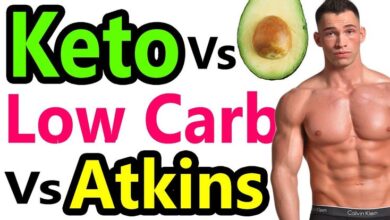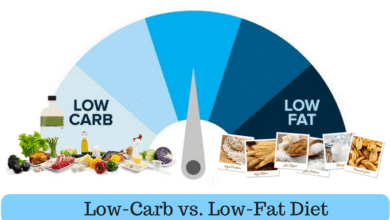
Keto Endurance Diet Plan: Burn Fat, Build Stamina, Crush Your Goals
If you’ve ever wondered whether the keto diet can help you not just shed weight but also enhance stamina and athletic performance, you’re in the right place. The Keto Endurance Diet Plan is not just about cutting carbs; it’s about reprogramming your body to use fat as its primary fuel source. And when done correctly, it can help you burn fat, build lasting energy, and crush your fitness goals.
In this guide, I’ll break down everything you need to know: the science, the benefits, meal planning, performance hacks, and how it stacks up against traditional diets. Whether you’re a marathon runner in the USA, a cyclist in Canada, or a fitness enthusiast in Europe, this article is built to help you maximize your results.
Why Choose a Keto Endurance Diet?
Endurance athletes often struggle with the “bonk”—that dreaded energy crash when glycogen stores run out. The keto endurance diet aims to eliminate this problem by teaching your body to burn fat efficiently. Unlike glycogen, which is limited, fat stores are nearly endless—even in lean individuals.
So, instead of hitting the wall at mile 20, keto-adapted athletes can maintain steady energy far longer.
Read Also Keto Endurance Athletes: Proven Meal Plans for Long-Distance Success
The Science Behind Keto and Endurance
To understand why keto can transform stamina, let’s break it down:
- Carb-based metabolism: Your body burns glycogen (stored glucose). Fast but limited.
- Fat-based metabolism: Your body burns fat. Slower to kick in but virtually limitless.
By lowering carb intake to about 20–50 grams per day, your liver produces ketones, an alternative energy source. These ketones fuel your muscles and brain, keeping energy consistent during endurance activities.
Key Benefits of Keto for Endurance Athletes
Here are the main reasons why keto has gained popularity among endurance athletes:
- Steady Energy Supply – No more sugar crashes mid-race.
- Fat Loss While Training – Burn fat as fuel and lean out.
- Improved Mental Clarity – Ketones fuel the brain more efficiently.
- Reduced Inflammation – Faster recovery between workouts.
- Better Metabolic Flexibility – Train your body to switch between fat and carbs when needed.
Common Myths About Keto and Endurance
Let’s bust a few myths:
- “Keto makes you weak.” Wrong—once fat-adapted, your body actually sustains energy better.
- “You can’t train hard on keto.” False—after adaptation, athletes often report improved stamina.
- “Keto is only for weight loss.” Not true—it’s also a performance and recovery enhancer.
How to Start a Keto Endurance Diet
Transitioning into keto takes patience. Here’s a simple plan:
- Cut Carbs Gradually – Drop to 20–50 grams daily.
- Increase Healthy Fats – Avocados, olive oil, fatty fish.
- Moderate Protein Intake – Too much protein can kick you out of ketosis.
- Stay Hydrated & Add Electrolytes – Prevent “keto flu.”
- Train at Low Intensity First – Allow your body to adapt.
Keto Adaptation Phase: What to Expect
Most people experience the keto flu during the first 1–2 weeks: fatigue, headaches, irritability. This is your body adjusting. After about 4–6 weeks, endurance performance usually improves dramatically.
Best Foods for a Keto Endurance Diet
Healthy Fats
- Avocados
- Olive oil
- Grass-fed butter
- Coconut oil
Protein Sources
- Salmon
- Eggs
- Chicken thighs
- Beef
Low-Carb Veggies
- Spinach
- Broccoli
- Zucchini
- Cauliflower
Keto Endurance Meal Plan (Sample Day)
| Meal | Example Foods |
|---|---|
| Breakfast | Keto coffee (butter + MCT oil), scrambled eggs with spinach |
| Lunch | Grilled salmon with avocado salad |
| Snack | Handful of almonds, cheese cubes |
| Dinner | Ribeye steak with sautéed zucchini |
| Post-Workout | Electrolyte water + bone broth |
Supplements That Boost Keto Performance
- MCT Oil – Rapid energy source.
- Electrolytes – Sodium, magnesium, potassium.
- Exogenous Ketones – Enhance fat adaptation.
- Collagen Peptides – Joint support for endurance training.
Keto and Hydration: Why It Matters
On keto, you excrete more water and sodium, which can cause dehydration. That’s why electrolyte balance is critical. Think of it as fueling the engine with the right fluids—without it, performance drops quickly.
Keto vs. Traditional High-Carb Endurance Diets
| Factor | Keto Endurance Diet | High-Carb Diet |
|---|---|---|
| Fuel Source | Fat & ketones | Glucose & glycogen |
| Energy Duration | Long-lasting | Short bursts |
| Fat Loss | High | Moderate |
| Risk of Bonking | Low | High |
| Adaptation Period | 4–6 weeks | Immediate |
Real-World Use Cases
- Marathon Runners: Avoid hitting the wall after 20 miles.
- Cyclists: Sustain energy over 100+ mile rides.
- Triathletes: Balance energy across long swim-bike-run sessions.
- Everyday Gym-Goers: More stamina for HIIT and circuit training.
Challenges of Keto for Endurance Training
- Initial drop in performance during adaptation.
- Social limitations (hard to eat out).
- Requires meal planning and discipline.
- Electrolyte imbalance if not managed.
Tips to Maximize Keto Endurance Results
- Train low, race high (practice on keto, but add carbs for competition).
- Use MCT oil before long runs.
- Track ketone levels with a blood meter.
- Sleep well—recovery is everything.
Who Should Avoid the Keto Endurance Diet?
- People with certain medical conditions (consult your doctor).
- Sprinters or athletes needing explosive power (they rely more on glycogen).
- Those unwilling to commit to adaptation.
Conclusion
The Keto Endurance Diet Plan is more than a weight-loss strategy—it’s a performance lifestyle. By shifting your body into fat-burning mode, you unlock steady energy, improved stamina, and faster recovery. While the transition can be tough, the long-term payoff for endurance athletes is worth it.
If you’re ready to burn fat, build stamina, and crush your goals, keto could be your ultimate performance advantage.
Read Also Is Keto Endurance the Secret Weapon for Cyclists and Triathletes?
FAQs
1. How long does it take to adapt to keto for endurance training?
It usually takes 4–6 weeks for your body to fully adapt and switch to fat as its primary fuel.
2. Can I still eat carbs on a keto endurance diet?
Yes, but only strategically—small carb “refeeds” can help with competition or intense training.
3. Is keto safe for long-distance running?
Absolutely, once adapted. Many marathoners report improved endurance and less fatigue.
4. Do I need supplements to succeed on keto?
Not required, but electrolytes, MCT oil, and exogenous ketones can boost performance.
5. Will I lose muscle on keto?
Not if you eat enough protein and continue resistance training alongside endurance workouts.




